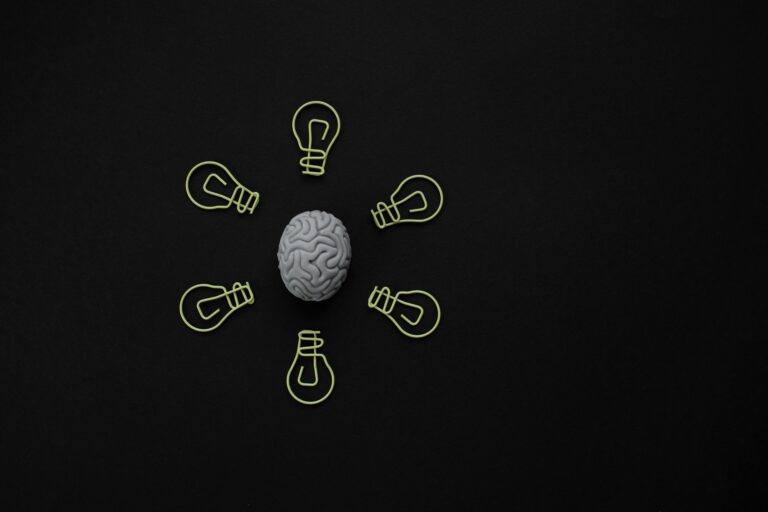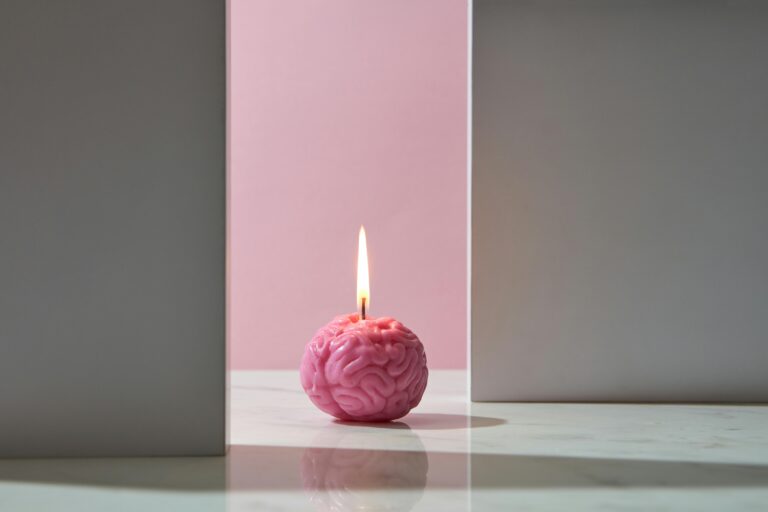Maintaining a sharp mind is essential for both personal and professional success. A healthy mind enhances problem-solving, memory, and overall well-being.
As we age, keeping the brain in good shape can help ward off cognitive decline and diseases like dementia. Fortunately, there are practical strategies to boost mental sharpness.
This guide explores effective ways to keep your mind sharp and enjoy the benefits of a vibrant, active mind.
- Engage in Regular Physical Exercise

Physical activity is not only beneficial for the body but also essential for a sharp mind. Exercise promotes better blood flow to the brain, delivering oxygen and nutrients that enhance cognitive function.
Studies have shown that regular aerobic exercises like running, swimming, or walking can improve memory and learning abilities.
Strength training also plays a role in supporting brain health by reducing stress and promoting the release of endorphins, which boost mood and mental clarity.
Incorporating exercise into your routine doesn’t have to be complicated. Activities such as yoga, dancing, or even gardening can stimulate your brain while keeping your body active.
Exercise also encourages the production of brain-derived neurotrophic factor (BDNF), a protein that supports the growth of new neurons. Over time, this helps your brain stay resilient and adaptable, contributing to long-term mental sharpness.
- Maintain a Healthy Diet
A well-balanced diet is a cornerstone of brain health. Consuming foods rich in antioxidants, healthy fats, and vitamins can significantly impact cognitive function.
Fatty fish like salmon and mackerel are excellent sources of omega-3 fatty acids, which are crucial for building brain cells. Similarly, berries, such as blueberries and strawberries, are packed with antioxidants that protect the brain from oxidative stress.
Leafy greens like spinach and kale provide vital nutrients like folate and vitamin K, which are associated with improved memory and focus.
Nuts and seeds, particularly walnuts and flaxseeds, are rich in omega-3s and vitamin E, known for supporting overall brain health. Staying hydrated is equally important, as dehydration can impair concentration and memory. Reducing processed foods, sugar, and unhealthy fats is critical to avoiding cognitive decline caused by inflammation.
- Practice Mental Exercises and Brain Games
Challenging your brain with mental exercises is one of the best ways to keep it sharp. Activities like puzzles, crosswords, Sudoku, and strategy games stimulate various parts of the brain, enhancing memory, attention, and problem-solving skills.
These activities encourage neural plasticity, which is the brain’s ability to adapt and grow through new experiences.
For those seeking a more immersive experience, consider learning chess, engaging in escape rooms, or trying complex video games designed for cognitive training.
Studies have shown that even small daily efforts, like solving a crossword puzzle or playing a memory game, can lead to noticeable improvements in cognitive function. Mental stimulation is key to keeping your brain active and healthy over time.
- Read Regularly
Reading is a powerful tool for maintaining mental sharpness. It not only broadens your knowledge but also strengthens neural connections in the brain. Whether you prefer novels, non-fiction, or newspapers, reading encourages critical thinking and improves focus.
It also enhances vocabulary and comprehension, which are linked to better overall cognitive function.
Making time to read daily, even for 20–30 minutes, can provide significant benefits. Consider joining a book club or engaging in discussions about the material you read, as this adds a social component that further stimulates the brain.
Diversifying your reading material by exploring different genres can also challenge your brain in new and exciting ways, keeping it agile and engaged.
Read More
Important Skills For Life in 2025
5 Traits of a Good Manager

- Get Adequate Sleep
Sleep is often overlooked, but it is one of the most critical factors for a sharp mind. During sleep, the brain consolidates memories and clears toxins that accumulate throughout the day. Lack of sleep can impair concentration, decision-making, and emotional regulation.
Adults typically need 7–9 hours of quality sleep per night for optimal brain function.
Creating a sleep-friendly environment can improve your rest. Establish a consistent sleep schedule, avoid caffeine and heavy meals before bedtime, and minimize screen time in the evening.
Practices like meditation or deep breathing can help you relax and prepare your body for sleep. Over time, prioritizing rest will enhance your mental clarity, problem-solving abilities, and overall cognitive health.
- Learn a New Skill
Learning new skills is one of the most effective ways to keep your mind sharp. When you acquire a new ability, whether it’s playing a musical instrument, learning a language, or mastering coding, your brain forms new neural connections.
This process enhances memory, problem-solving skills, and creativity. The act of stepping out of your comfort zone and challenging your brain prevents cognitive stagnation and promotes adaptability.
For example, picking up a new hobby like painting or woodworking combines physical coordination with mental planning. Similarly, joining a class or workshop introduces social interaction, further stimulating brain activity.
The key is to choose something that interests you, as intrinsic motivation enhances learning. Over time, these new skills enrich your life while keeping your brain resilient and sharp.
- Practice Mindfulness and Meditation
Mindfulness and meditation have profound effects on mental clarity and sharpness. These practices reduce stress, which can otherwise cloud judgment and impair memory.
By focusing on the present moment, mindfulness encourages a heightened state of awareness and improves attention span. Meditation, on the other hand, helps strengthen the prefrontal cortex—the part of the brain responsible for decision-making and focus.
Starting with just five minutes of mindfulness or meditation daily can yield noticeable results. Techniques like deep breathing, body scanning, or guided visualization are excellent for beginners.
Over time, regular meditation helps reduce anxiety and fosters mental resilience, making it easier to navigate challenges with a clear and focused mind.
- Stay Socially Connected

Strong social connections are vital for maintaining a sharp mind. Interacting with others stimulates various cognitive functions, including language, memory, and emotional regulation. Conversations and social activities encourage mental engagement and reduce feelings of isolation, which can negatively impact brain health.
Participating in group activities, volunteering, or simply maintaining close relationships with friends and family can make a significant difference. Socializing also introduces diverse perspectives and challenges your brain to think critically. Whether it’s joining a club, attending community events, or having regular catch-ups with loved ones, staying socially active ensures your mind remains vibrant and agile.
- Keep a Journal
Writing in a journal is an excellent way to keep your mind sharp. The act of organizing your thoughts and putting them into words exercises memory, critical thinking, and creativity. Journaling also allows for self-reflection, helping you process emotions and improve mental clarity.
A daily journaling practice doesn’t have to be lengthy—just a few sentences summarizing your day or noting things you’re grateful for can suffice. Reflecting on goals, challenges, and achievements also provides a sense of purpose and keeps your brain actively engaged. Over time, this habit fosters mental discipline and enhances cognitive health.
- Limit Screen Time
Excessive screen time can negatively impact cognitive function, leading to reduced attention span, memory issues, and even mental fatigue. While technology is an integral part of modern life, balancing its use is crucial for keeping your mind sharp.
Prolonged exposure to screens can overwhelm the brain, making it harder to focus and process information effectively.
To mitigate these effects, practice digital detoxes by setting aside specific hours to unplug from devices. Engage in screen-free activities like reading, exercising, or spending time in nature.
Adjusting screen settings, such as using blue light filters, and taking regular breaks during screen use can also help reduce strain and support cognitive health.
- Prioritize Lifelong Learning
Committing to lifelong learning is one of the best ways to maintain a sharp mind. Continuously acquiring knowledge keeps your brain active and adaptable. Whether it’s attending seminars, taking online courses, or simply reading about new topics, learning stimulates neural growth and reinforces memory.
Adopt a curious mindset and explore subjects that pique your interest. This could range from history and science to art and technology. Engaging with new material expands your intellectual horizons and promotes mental agility.
Furthermore, lifelong learning helps you stay updated with current trends, making it easier to adapt to changes in both personal and professional settings.
Conclusion
Keeping your mind sharp is essential for overall well-being and productivity. By adopting habits such as lifelong learning, mindfulness, and staying socially connected, you can enhance cognitive function and mental resilience.
Regularly challenging yourself with new activities and limiting screen time also contribute significantly. These practices not only improve focus but also prevent mental decline over time.
To keep your mind sharp, consistency is key, small, daily efforts add up to lasting benefits. Embrace these strategies as part of your routine to cultivate a vibrant, agile mind and unlock your full potential.






